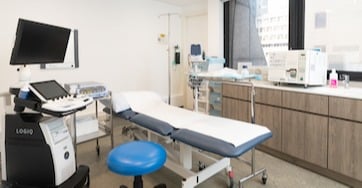Aspirin is a common medication used to treat fevers and relieve pain from headaches, muscle aches and toothaches. It works by blocking a certain natural substance in your body to reduce pain and swelling.
Aspirin is often used for cardiovascular conditions, but it has also been shown to prevent and reduce complications arising from preeclampsia for pregnant women. So does that mean aspirin is safe to take during any pregnancy? Not necessarily.
Why would women need aspirin during pregnancy?
Again, aspirin (acetylsalicylic acid) is a common medication used to treat inflammation and pain. You can easily access the medication over the counter, similar to ibuprofen.
Taking aspirin during pregnancy is generally not recommended unless advised by your doctor. This is because some studies have negatively linked aspirin consumption to complications during pregnancy. However, some pregnant women are advised to take a low dose of aspirin (around 60 to 100 milligrams), if they are at risk of developing preeclampsia. Low doses of aspirin for these pregnancies have been shown to reduce the risk of developing the condition.
In addition to aspirin, calcium supplements may also help to reduce the risk in high-risk women. Usually, these medications will be started at 16 weeks’ gestation and continue up until 37 weeks.
What is preeclampsia?
Preeclampsia is a condition that women can develop during their pregnancy and occurs in around 6% of pregnant women. The condition sees pregnant women suffer from high blood pressure and high levels of protein in their urine. Other symptoms also include:
- Headaches
- Blurred vision
- Upper abdominal pain
- Swelling in the feet, legs and hands
The exact cause of preeclampsia is unknown, but there has been speculation that the condition arises from the way the placenta is formed in early pregnancy. Preeclampsia usually appears later in pregnancy (from the third trimester onwards) but can happen earlier.
Complications of preeclampsia
As a result of preeclampsia, some women may suffer transient or permanently impaired liver and kidney functions, as well as blood clotting problems. Roughly 1–2% of women with preeclampsia can also have convulsions (a sudden and violent movement of the body caused by involuntary muscle contraction).
Unborn babies are also at risk when preeclampsia occurs. They can develop growth restriction or in the worst case, even death. Death can be a result of poor growth or due to placental abruption (where the placenta breaks away from the uterine wall).
In severe cases, the unborn baby will need to be delivered prematurely and be cared for in the neonatal intensive care unit.
OT&P Obstetrician Dr Zara Chan
Who is at risk of preeclampsia?
There are certain maternal conditions and pre-existing characteristics that will increase the risk of preeclampsia. The risk is increased if:
- You’ve previously had preeclampsia;
- You’re 35 years old or more, and it’s your first pregnancy;
- You’re 35 years old and it’s been more than 10 years since your last pregnancy;
- You’re carrying twins or more;
- You have diabetes or hypertension;
- You have renal disease;
- You suffer from an autoimmune condition (such as lupus erythematosus or antiphospholipid syndrome);
- Your body mass index (BMI) is 30kg/m2 or more.
If you show any of the above factors or are concerned about your risk of preeclampsia, please discuss with your doctor the need for aspirin or other treatment.
How do I know if I have preeclampsia?
When you have your routine antenatal check-up, your blood pressure and urine should be checked at every visit.
OT&P Obstetrician Dr Zara Chan
It’s vital that you attend and schedule routine antenatal check-ups. This will help your doctor to detect and screen for any abnormalities, such as abnormal blood pressure or protein in the urine (proteinuria) that could indicate preeclampsia. It’s uncommon for severe preeclampsia to occur with no forewarning discomfort or signs; however, you should still seek your doctor's advice if you are feeling unwell during your pregnancy.
Is preeclampsia curable?
The only cure for preeclampsia is to deliver the baby with the placenta. Once the condition is diagnosed, your obstetrician will discuss your plans and options for delivery. Some women will find that they need to deliver immediately upon diagnosis, while others will be able to wait until full term (at 37 weeks gestation) for delivery. These decisions will be based on how far along your baby is, how well your baby is doing and the severity of your preeclampsia.
How does aspirin help reduce the risk of preeclampsia?
When certain women are high-risk of developing preeclampsia, their doctor will recommend a low dose of aspirin. Since preeclampsia is thought to be related to inflammation connected to the placenta, aspirin can inhibit the inflammatory response and potentially prevent preeclampsia.
Is it safe to take a low dose of aspirin?
Yes. Research has shown that low doses of aspirin during pregnancy are not associated with an increased risk of miscarriage. Please consult your doctor and only take the aspirin your doctor prescribes for you.
Will preeclampsia happen in all my pregnancies?
The risk of recurrence in a future pregnancy is 10% to 40% depending on when it occurred in the previous pregnancy. Previously suffering from preeclampsia is a risk factor for future pregnancies. If you have any concerns, please discuss them with your obstetrician.
Whichever stage of your pregnancy you're in, staying educated about your body and baby's progression is crucial for a healthy pregnancy and delivery. You should be scheduling and attending regular antenatal check-ups to monitor your baby’s growth.
If you’re looking for pregnancy help, at our OT&P Family clinic, we provide a range of pregnancy packages for you to choose from. Have your antenatal examinations, education and pregnancy guidance all handled for you for a worry-free childbirth experience.
References
1. Briggs, G. and Freeman, R. (2015). Drugs in Pregnancy and Lactation. 10th ed. Philadelphia: Wolters Kluwer.
2. Schiff, E. and Mashiach, S. (1992). The Use of Low Dose Aspirin in Pregnancy. American Journal of Reproductive Immunology, 28(3–4), pp.153–156.
3. Cipolla, M. and Kraig, R. (2011). Seizures in Women with Preeclampsia: Mechanisms and Management. Fetal and Maternal Medicine Review, 22(2), pp.91–108.
4. LeFevre, M. (2014). Low-Dose Aspirin Use for the Prevention of Morbidity and Mortality From Preeclampsia: U.S. Preventive Services Task Force Recommendation Statement. Annals of Internal Medicine, 161(11), p.819.

 Central General Practice
Central General Practice
 Repulse Bay
Repulse Bay
 Clearwater Bay
Clearwater Bay
 BodyWorX Clinic
BodyWorX Clinic
 Central Specialist Clinic
Central Specialist Clinic
 MindWorX Clinic
MindWorX Clinic
 Partner Clinics
Partner Clinics
 Family Clinic
Family Clinic
 OT&P Annerley Midwives Clinic
OT&P Annerley Midwives Clinic

